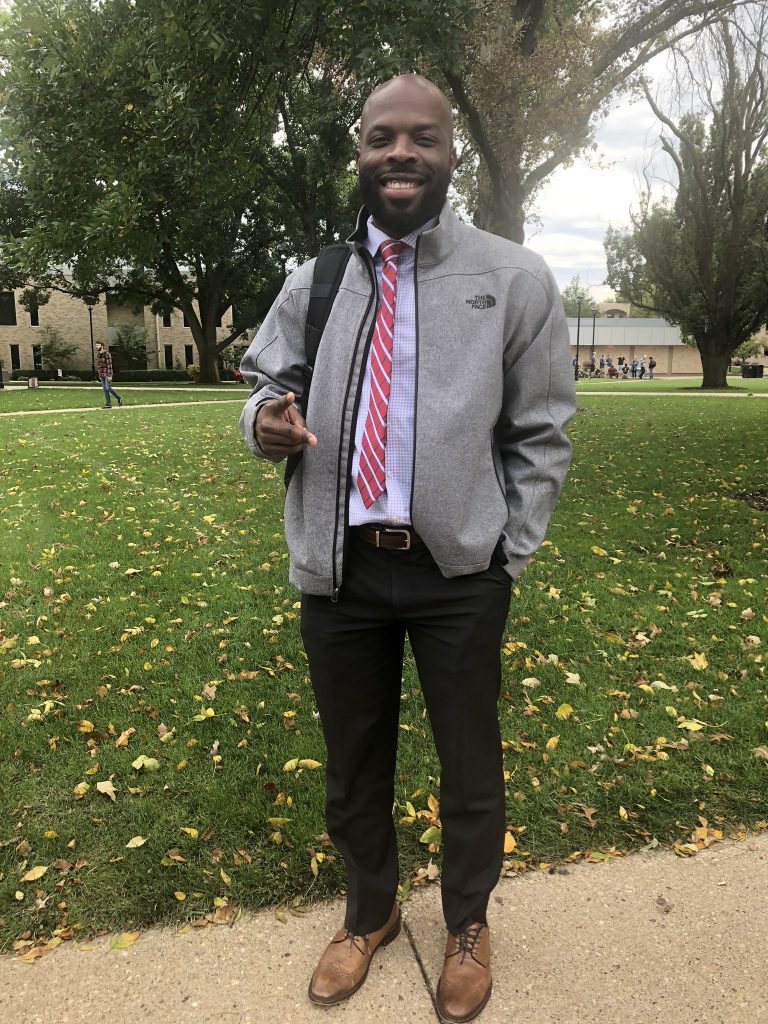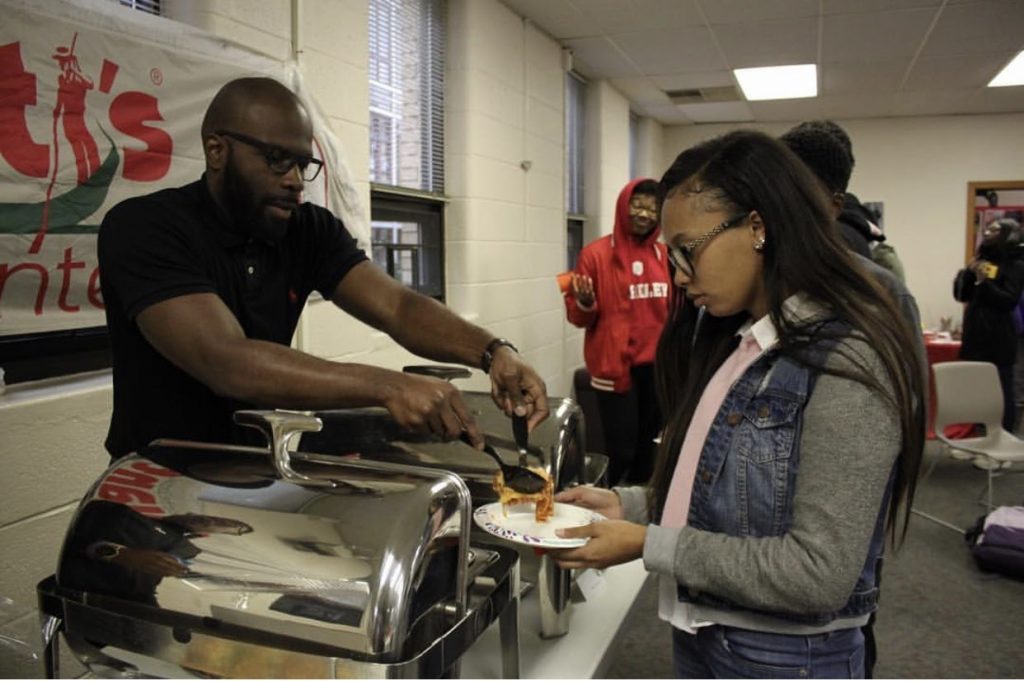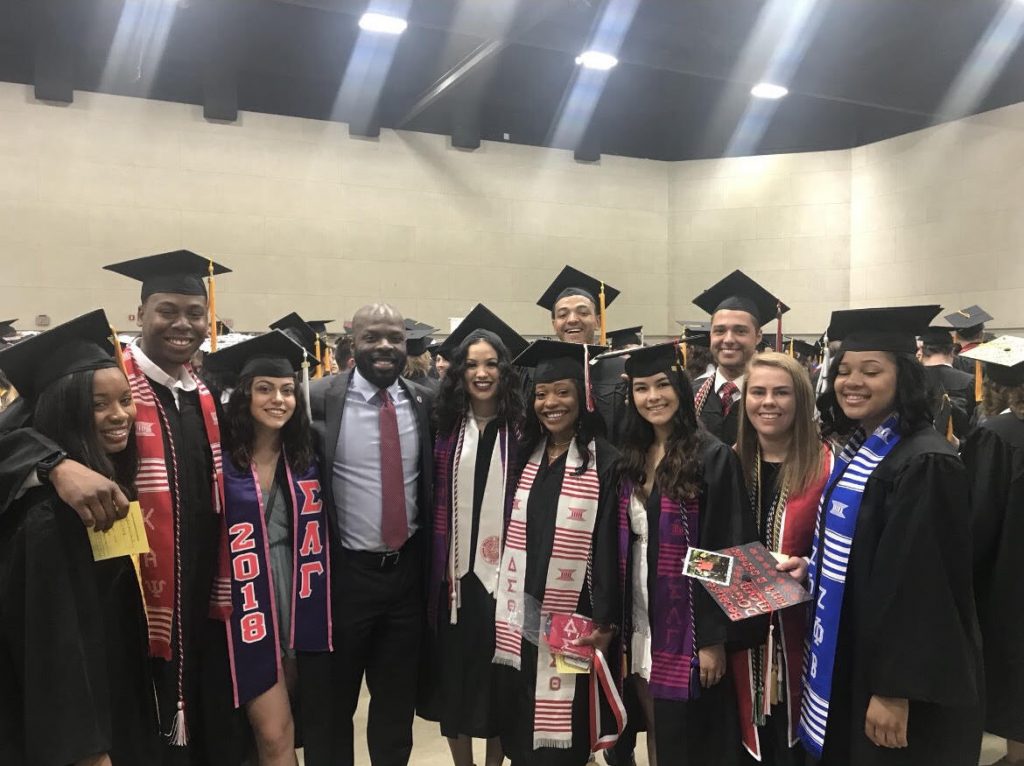
With his 10-year anniversary of working at Bradley University on the horizon, Norris Chase, executive director of the Office of Diversity and Inclusion (ODI), announced his resignation from the university on Jan. 17 in an email statement.
In the statement, Chase detailed that Jan. 31 is planned to be his final day on the Hilltop and thanked the community members that he worked with. He noted separately that, as he joined Bradley on June 4, 2012, his departure comes several months shy of a full decade with the university.
Chase announced that he was leaving Bradley in order to pursue a career opportunity in higher education as he completes his Ph.D. He stated that he saw the decision as a next step for his career, and said that he would still be working at Bradley had the opportunity not arisen.
“When I say ‘my resignation,’ I can probably just say, ‘I’m going to get another opportunity,” Chase said. “It’s the most logical opportunity for me to continue to learn and grow professionally. … There’s so much great work still to be done here, and the only reason I’m leaving is because I had another opportunity that I could not pass.”
Nevertheless, Chase made a point of reiterating the bond that he has with Bradley.
“This is a bittersweet move for me,” Chase said. “I love Bradley, I love the Hilltop, I love the students through and through and I love the staff that I get the opportunity to work with and I’ve had the opportunity to partner with over the years. Bradley is my second home, and I’m going to miss being here.”

Chase cited working with Bradley’s staff and students, particularly those from historically underrepresented backgrounds, as a highlight of his tenure in the university environment.
He credited his fellow ODI co-workers — Jhoanna Vega-Rocha, assistant director, and Eugenia Kyle, administrative unit support — as “amazing partners” and “amazing team members.” In specific regard to his responsibilities as executive director, Chase said that he most enjoyed working with students, staff and stakeholders to define an objective for the department both through an overarching framework and specific department goals. He further explained how he has seen the effects of his student collaborations manifest through the department’s programs, including ODI Scholars, Diversity in STEM, Bradley Advocating for Diversity (BAD) and Circle of Brotherhood.
“I still have alumni talk about their experience being in … our Scholars program,” Chase said. “Building those programs is the greatest legacy I believe that I’ve had in this role. … The one thing that I can always say is that I always worked with students to achieve whatever we achieved.”
Vega-Rocha, who met Chase as a first-year student in 2013, pointed to her assistance in the creation of B.A.D. as one of her fondest memories of working with him.
“This experience was really rewarding because [Chase] let us, as students, develop and execute topics related to equity, diversity and inclusion,” Vega-Rocha said. “At the time, there were no programs or trainings offered at any level in the university, so it really helped fill a need at the time and was the precedent for similar programs that developed after.”
Ariana Galvez, senior political science and international studies major, also met Chase through BAD. She spoke highly of his commitment to supporting first-generation students and students of color, recounting his skill in knowing how to uplift students.
“The first time I ever had a full conversation with Norris was August of my sophomore year during [a] BAD meeting,” Galvez said. “I told him about an internship opportunity that I had that summer. … I didn’t want to share with others, but Norris reminded me that I needed to celebrate my achievements, so I did, and when I shared with everyone, Norris and them were all so excited for me. That moment perfectly illustrates how much Norris is always cheering on his students.”
Chase credits supportive mentors with influencing his current line of work, namely the Dean of Students at his alma mater, Oakland University. While he majored in business, he ended up getting a master’s degree in student affairs at Clemson University out of a passion for the subject that he got from feeling inspired by his mentors.
“They changed my life,” Chase said. “As a result of that, I felt like I needed to give back, and me giving back was me trying my best to enter into higher education and influence and inspire students to take on the next level of leadership and opportunity in their lives.”
A lesson that Chase plans to take into his future is the value in centering voices from the most marginalized perspectives, which he believes enables the viewpoint of work from an equitable standpoint. In tandem, he illustrated a personal philosophy of “keys to success” that grew during his time at Bradley, through which he defined community as a central value for all students, particularly students of color.
“Community has been the most important thing from an engagement standpoint [and] retention standpoint … and for me, that philosophy definitely developed when I was here at Bradley,” Chase said. “In about 2015, especially when I began the role as executive director, community became really important. … When I start looking at … my own history, my own racial history, I thought about my ancestors — Romeo B. Garrett and his story, his legacy and the things that helped him be successful, and community kept coming back as a theme that emerged.”
When asked how he hoped the work of him and his colleagues could influence future Braves, Chase elaborated on the impact of the ODI Scholars program. He stated that the program has had a higher first-year retention rate than Bradley overall for four of its eight years of activity, and reached the milestone of serving over 500 students last year.
He further noted that Vega-Rocha was among the first mentees of the program, and now works in the program as part of her work as assistant director. Vega-Rocha separately stated that the program and several other programs in ODI helped her stay connected to her culture and identity.
“I can honestly say that I would not have stayed at Bradley or graduated if it were not for Norris and this office,” Vega-Rocha said. “I came back to work at Bradley [following graduation] in 2019 in a different office, but when the opportunity to work in ODI opened up, I knew I had to go for it. Working with students who have had similar experiences as me has been the most fulfilling experience of my life.”
Chase saw Vega-Rocha’s student-to-leader transition in the department as a full-circle moment that solidified his focus on legacies, in that programs such as those started by ODI will always be around to help the next generations of students.
“Everything that I did, every program that I created, every meeting that I went to, I centered the students who were not at the table before,” Chase said. “My greatest work came from working with the students, [being] in partnership with the students [and] aiming for the best interest of the students. … I felt like within the things that I could do with the students’ support, we achieved a lot, and I’m proud of that.”

